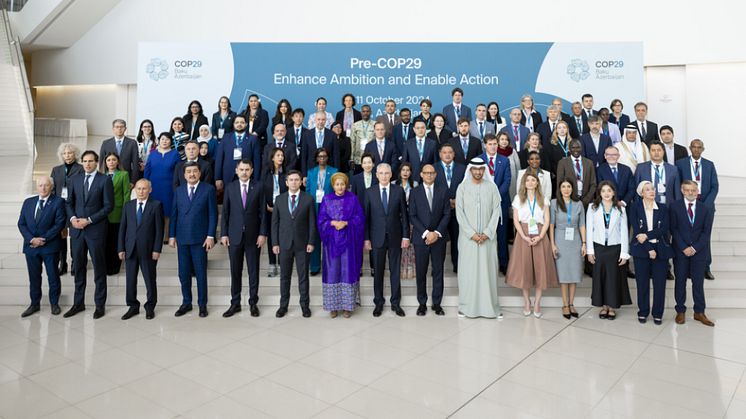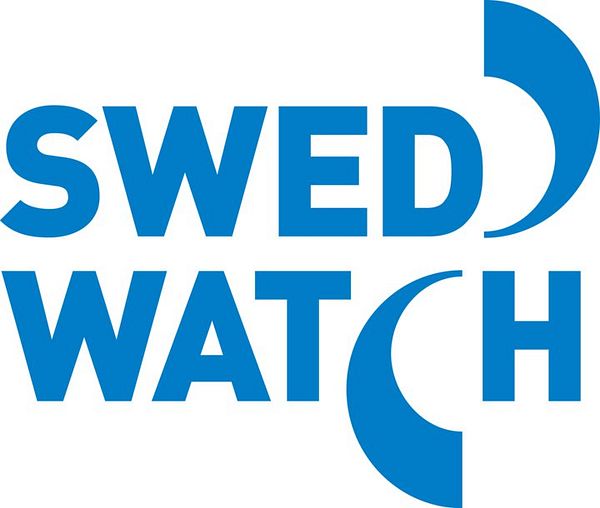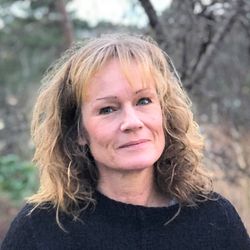
Pressmeddelande -
COP29: Agree to a fair climate finance goal that will reach those who need it the most
At COP29, the spotlight will be on climate finance. But deciding an ambitious target amount is only half of the solution. Climate finance must also be primarily grants and reach the most vulnerable countries and communities - especially Indigenous Peoples, and local communities on the frontlines.
-Without inclusive and rights-based support, the promise of climate finance remains hollow, says Lubna Hawwa, Programme Officer, Swedwatch.
As COP29 approaches in Baku, Swedwatch stands firmly behind calls from civil society and low and middle-income countries to prioritize a fair climate finance goal (officially known as New Collective Quantified Goal - NCQG) that meets the immense costs of climate action in their countries, estimated to amount to at least USD 5.8 trillion by the end of 2030.
- Despite minimal carbon footprints, the poorest and most climate vulnerable countries like small islands face the most severe impacts. The richest countries with the most historical emissions, must take the lead on increasing grant-based support to address this injustice. This money should be raised from innovative sources like taxes and levies on big polluting activities such as fossil fuels extraction. Without it, the climate crisis will deepen inequalities in and between countries, says Lubna Hawwa, leading Swedwatch´s work on climate justice.
Climate finance loans exacerbate debt
In 2009, economically developed nations pledged to mobilize $100 billion annually by 2020 for climate action, yet the goal was met two years after this deadline with little funds going into adaptation. Furthermore, a staggering 70% of the climate finance flows between 2016 and 2022 came to the recipient countries as loans rather than grants.
- This means low- and middle-income countries have to pay back most of the money with interest, adding to their already heavy debt burden, says Lubna Hawwa.
According to the International Institute for Environment and Development, 58 of the least developed and climate vulnerable countries spent $59 billion repaying debts to creditors in 2022—more than double the $28 billion they received in climate finance the same year.
-We keep hearing Swedish and EU leaders talk about increasing private finance for climate action, but it doesn’t work for adaptation and loss and damage because there is often no business case or return on investment is too low. This leaves hard-hit countries and communities struggling to cope with escalating loss and damage, while the debt piles up, says Lubna Hawwa.
The EU remains the largest contributor to international climate finance and is positioned to make a significant impact by supporting the most affected countries with additional grants. However, a recent analysis by Climate Action Network (CAN) Europe reveals a concerning trend of loans still being heavily favored; in 2022, only 45% of climate financing from EU Member States was provided through grants, the remainder consisted of loans, equity, and guarantees.
Inequitable renewable energy investments
An additional aspect of climate finance injustice lies in the distribution of renewable energy investments. While renewable investments are finally outpacing fossil fuels, most remains concentrated in advanced economies and in China. Moreover, renewables projects in low- and middle-income countries frequently lack adequate human rights safeguards and fail to provide local communities with affordable energy access or job opportunities, thus deepening inequality rather than addressing it.
-This leaves the majority of the global population, without the support they need for a just energy transition. This unequal distribution is not only unjust but threatens the global goal of limiting temperature rise to below 1.5 degrees, says Lubna Hawwa.
Swedwatch call on Azerbaijan as host of COP29
As COP29 convenes once again in a country with a troubling human rights record, Swedwatch stresses that the ability of civil society to act as a watchdog is critical. Swedwatch also reiterates its call to ensure climate negotiations remain inclusive, allowing civil society and activists from the frontlines to participate.
-There are very troubling reports of arrests and the silencing of journalists and critical voices. As the host of these vital negotiations, the government of Azerbaijan must ensure a safe, inclusive civic space where all voices - including free media, civil society, and activists - are heard, and accountability is upheld, says Lubna Hawwa.
Read the full analysis from Swedwatch:
Revealing the injustice in climate finance
FACT BOX: Swedwatch’s core calls for Sweden and EU at COP29
Together with 18 other Swedish civil society organization coordinated by Concord, Swedwatch is calling for:
- Finance for the most affected groups and countries.
- Cut emissions and put an end to fossil fuels.
- Step up adaptation.
- Inclusive decision-making and broad participation.
Specifically, Sweden should provide predictable and timely pledges to the Green Climate Fund and commit to new loss and damage finance that is grants-based and additional to existing aid flows.
Read the full COP29 position paper, "COP29: Pay up, phase out and include":
COP29 position paper (concord.se)
FACT BOX: Swedwatch participates digitally at COP29
Swedwach doesn’t have any engagements of its own at COP29, and will follow the negotiations digitally. As part of Concord´s working group on climate and environment justice, Swedwatch has given feedback to what the Swedish and EU delegations should focus on mainly on phase out of fossil fuels, a new financing goal, and with relation to the participation of civil society. Ensuring civic spaces at the climate talks is something Swedwatch´s has discussed with the delegations in the past years as well.
FACT BOX:
The climate funding in figures – the most effected left behind
- Least Developed Countries (LDCs) and Small Island Developing States (SIDS) are not receiving fair funding, with only 18% and 3% share of the total climate finance in 2022, respectively.
- Indigenous Peoples protect the majority of global biodiversity but less than one percent of international climate finance went towards Indigenous Peoples’ land tenure and forest management between 2011-2020.
- Despite producing a third of the world´s food, small-scale farmers and rural communities received just 2 % of international public climate finance during 2021.
- Gender-responsive climate initiatives are underfunded, with only 0.01% of global finance supporting projects that address both climate and women's rights.
- Locally-led climate actions remain neglected, receiving less than 10% of climate finance between 2003-2016.
- The 10 most fragile states receive less than one percent of total climate adaptation flows, despite their heightened vulnerability.
Ämnen
Kategorier
Swedwatch är en ideell och politiskt obunden researchorganisation. Vårt mål är att företag, investerare och stater ska ta ansvar för mänskliga rättigheter och miljö och att rättighetsinnehavare kan göra sina röster hörda.


